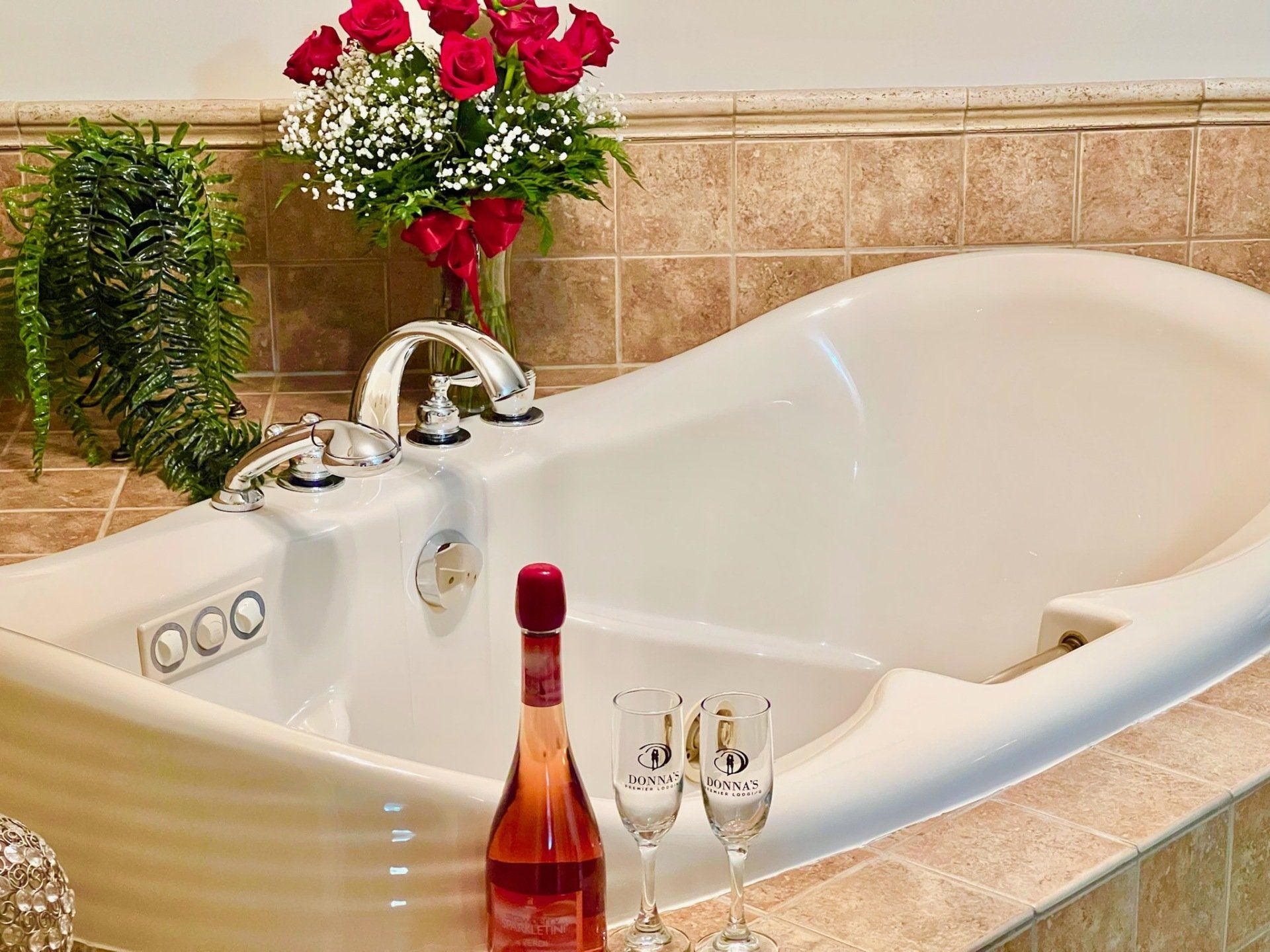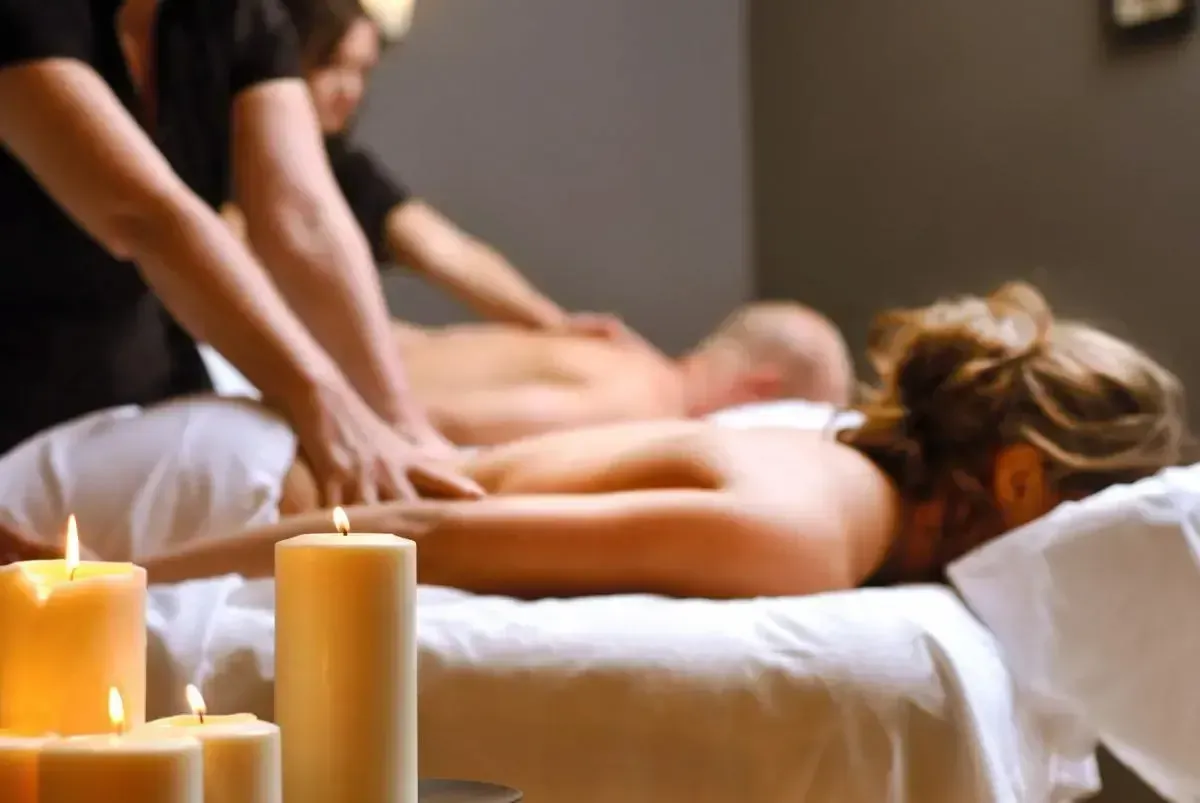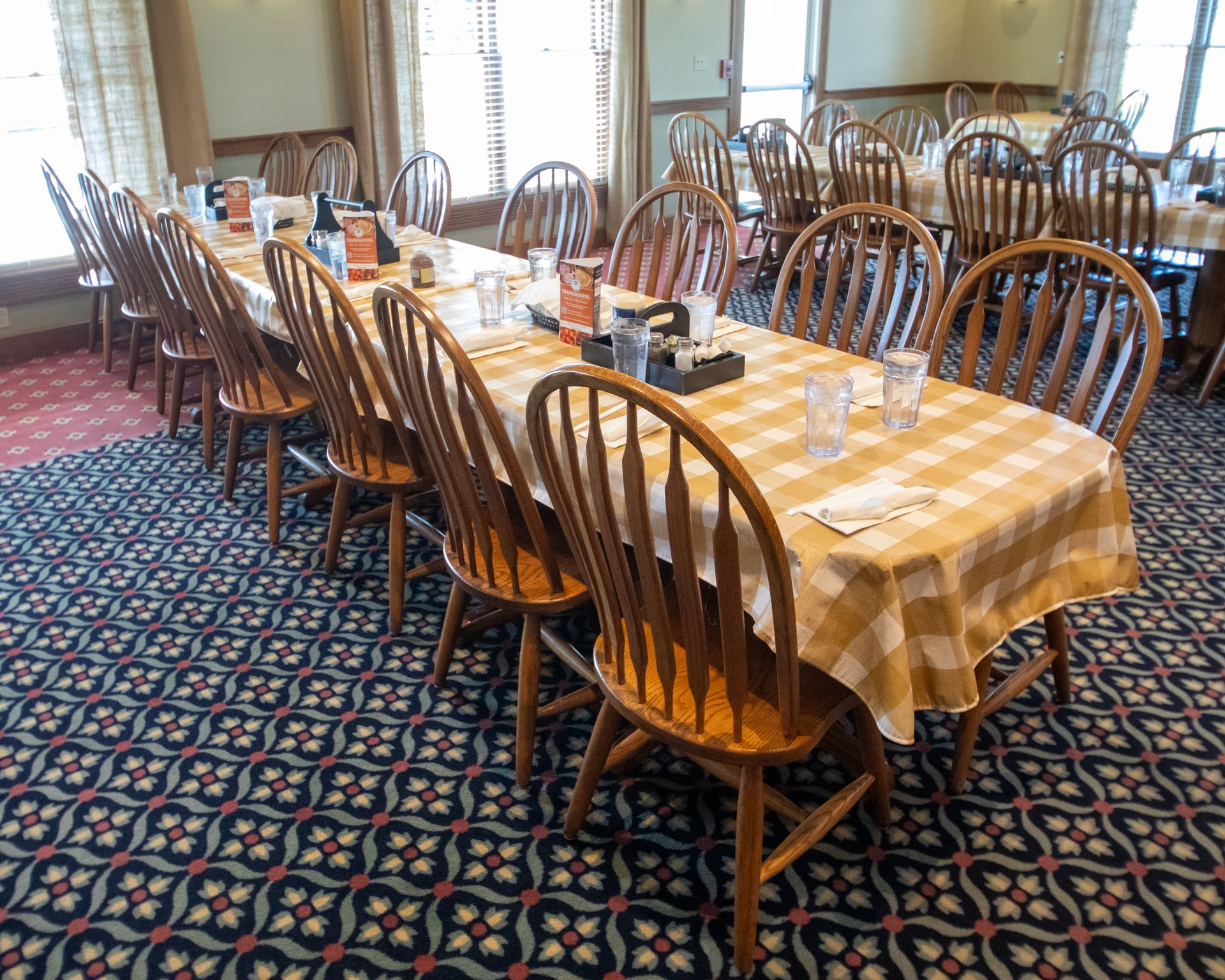Love, Rest, and Adventure: Why Couples Need to Prioritize Vacation Time
January 10, 2025
There's something magical about waking up in an unfamiliar place, the morning sun streaming through curtains that aren't yours, with the person you love beside you. No alarm clocks, no rushing to meetings, no everyday responsibilities—just the promise of adventure and connection stretching out before you.
The modern world seems designed to keep us perpetually busy, constantly connected to our work emails, and forever chasing the next deadline. This reality is starkly reflected in a recent Expedia Annual Vacation Deprivation Report : 32% of Americans wait at least a year or more between vacations—nearly double the rate of other countries. Even more telling, 65% of Americans feel they don't have enough time off, despite 86% believing that vacation time is critical for their health and wellbeing. In this endless cycle of productivity, we often forget that humans aren't meant to operate like machines. We need periods of rest, reflection, and rejuvenation—not just as individuals, but especially as couples. The science behind this is compelling: studies have shown that taking regular vacations can reduce stress, lower the risk of heart disease, improve sleep quality, and boost mental health. But beyond these physical benefits, vacations offer something even more precious for couples: the opportunity to rediscover each other. Think about it—when was the last time you and your partner had an uninterrupted conversation that wasn't about work, household chores, or daily logistics? Vacations create a sacred space where we can step away from our roles as employees, parents, or caregivers and simply be lovers again.
The shared experience of exploring new places together creates neural pathways in our brains associated with joy, adventure, and connection. When couples travel together, they're not just accumulating Instagram-worthy photos; they're building a reservoir of shared memories that strengthen their bond. Whether it’s trying a new restaurant or learning about a different culture, these experiences become the stories we tell for years to come. Vacations also provide a unique opportunity for couples to grow together. When you're navigating an unfamiliar place or culture, you're forced to work as a team. Maybe one partner is better at reading maps while the other excels at striking up conversations with locals. These complementary skills create a dance of mutual dependence and appreciation that can reinvigorate a relationship that might have fallen into routine.
From a mental health perspective, the benefits of vacation time are profound. The physical distance from our everyday environment helps create mental distance from our stressors. This break from chronic stress allows our bodies to reset, our minds to clear, and our emotional batteries to recharge. For couples, this mental refreshment often translates into increased patience, better communication, and a renewed capacity for empathy and understanding.
The physical health benefits of vacations shouldn't be understated either. The reduction in stress hormones like cortisol can lead to improved immune function, better cardiovascular health, and more restful sleep. The impact extends to professional performance too—research published in the Harvard Business Review found that for every 10 hours of vacation time used, an employee's year-end performance improves by 8%. Perhaps this explains why 89% of workers tell the Pew Research Center that they consider paid vacation time extremely or very important in their job benefits. Couples who vacation together often find themselves naturally more active—walking through new cities or hiking through natural landscapes. This physical activity, combined with better sleep and reduced stress, creates a powerful cocktail of health benefits that can extend well beyond the vacation itself. The investment in vacation time is really an investment in your relationship's future. Couples who regularly take time to travel together report higher relationship satisfaction and better communication. They're also more likely to stay together long-term, perhaps because they've learned the importance of prioritizing their connection over the endless demands of work and daily life.
The modern world seems designed to keep us perpetually busy, constantly connected to our work emails, and forever chasing the next deadline. This reality is starkly reflected in a recent Expedia Annual Vacation Deprivation Report : 32% of Americans wait at least a year or more between vacations—nearly double the rate of other countries. Even more telling, 65% of Americans feel they don't have enough time off, despite 86% believing that vacation time is critical for their health and wellbeing. In this endless cycle of productivity, we often forget that humans aren't meant to operate like machines. We need periods of rest, reflection, and rejuvenation—not just as individuals, but especially as couples. The science behind this is compelling: studies have shown that taking regular vacations can reduce stress, lower the risk of heart disease, improve sleep quality, and boost mental health. But beyond these physical benefits, vacations offer something even more precious for couples: the opportunity to rediscover each other. Think about it—when was the last time you and your partner had an uninterrupted conversation that wasn't about work, household chores, or daily logistics? Vacations create a sacred space where we can step away from our roles as employees, parents, or caregivers and simply be lovers again.
The shared experience of exploring new places together creates neural pathways in our brains associated with joy, adventure, and connection. When couples travel together, they're not just accumulating Instagram-worthy photos; they're building a reservoir of shared memories that strengthen their bond. Whether it’s trying a new restaurant or learning about a different culture, these experiences become the stories we tell for years to come. Vacations also provide a unique opportunity for couples to grow together. When you're navigating an unfamiliar place or culture, you're forced to work as a team. Maybe one partner is better at reading maps while the other excels at striking up conversations with locals. These complementary skills create a dance of mutual dependence and appreciation that can reinvigorate a relationship that might have fallen into routine.
From a mental health perspective, the benefits of vacation time are profound. The physical distance from our everyday environment helps create mental distance from our stressors. This break from chronic stress allows our bodies to reset, our minds to clear, and our emotional batteries to recharge. For couples, this mental refreshment often translates into increased patience, better communication, and a renewed capacity for empathy and understanding.
The physical health benefits of vacations shouldn't be understated either. The reduction in stress hormones like cortisol can lead to improved immune function, better cardiovascular health, and more restful sleep. The impact extends to professional performance too—research published in the Harvard Business Review found that for every 10 hours of vacation time used, an employee's year-end performance improves by 8%. Perhaps this explains why 89% of workers tell the Pew Research Center that they consider paid vacation time extremely or very important in their job benefits. Couples who vacation together often find themselves naturally more active—walking through new cities or hiking through natural landscapes. This physical activity, combined with better sleep and reduced stress, creates a powerful cocktail of health benefits that can extend well beyond the vacation itself. The investment in vacation time is really an investment in your relationship's future. Couples who regularly take time to travel together report higher relationship satisfaction and better communication. They're also more likely to stay together long-term, perhaps because they've learned the importance of prioritizing their connection over the endless demands of work and daily life.
As we navigate an increasingly fast-paced and demanding world, the ability to step away and reconnect with our loved ones becomes not just a luxury, but a necessity. This isn't just feel-good advice. In the
Expedia report
, 85% of workers globally report returning from vacation with a more positive attitude. Time away can even spark creativity in unexpected ways; just consider that
Lin-Manuel Miranda was on vacation
when the idea for Hamilton came to him. Yet despite these clear benefits,
46% of workers take less time off than their compensation package provides
. Vacations remind us that life isn't just about what we achieve or produce—it's about the moments we share, the memories we create, and the love we nurture. So the next time you're hesitating about taking that trip or feeling guilty about stepping away from work, remember: investing in vacation time is investing in your health, your happiness, and most importantly, your love.

One of the most memorable parts of visiting Ohio’s Amish Country is indulging in its incredible bakeries, where time-honored family recipes and from-scratch baking shine. When you stay at Donna’s Premier Lodging, you’re perfectly positioned to explore these outstanding bakeries and enjoy the comforting flavors that make the area so special. From flaky pie crust to melt-in-your-mouth donuts, these local favorites offer a delicious glimpse into Amish Country’s rich traditions — perfect for fueling a day of shopping or sightseeing. Don’t forget to grab a delicious donut or pastry to enjoy with your coffee back at your cozy suite or cabin at Donna’s Premier Lodging. Local Small Bakery Favorites Kauffman’s Country Bakery: Kauffman’s Country Bakery is a must-stop for anyone craving classic Amish baked goods, offering everything from fresh breads and cookies to donuts, cinnamon rolls, and their famous Dutch, fruit, and cream pies. Everything is made from scratch using simple ingredients, delivering authentic flavor in every bite. If you are a guest staying at Donna's Premier Lodging, on your day of arrival, you will get a sampling of Kauffman's cookies in your welcome bag. 4357 US-62, Millersburg, OH 44654 Miller’s Bakery: A beloved local favorite, Miller’s Bakery is well known for its fry pies, tarts, cinnamon raisin bread, and fresh donuts made daily. Their cream sticks and homestyle pastries make this small bakery a sweet stop worth seeking out during your Amish Country visit. 4280 Township Hwy 356, Millersburg, OH Bakeries Anchored in Amish Country Destinations Hershberger’s Farm and Bakery: At Hershberger’s Farm and Bakery, bakers start before sunrise crafting fresh breads, donuts, cinnamon rolls, cookies, pies, and their famous fry pies using family recipes. Made without preservatives and always from scratch, their baked goods deliver a freshness you can taste with every bite. 5452 OH-557, Millersburg, OH 44654 The Amish Door Bakery (Amish Door Village): Part of the larger Amish Door Village campus, The Amish Door Bakery is famous for its homemade donuts, cream sticks, and crowd-pleasing apple fritters, all handcrafted daily using high-quality ingredients. They also offer a wonderful selection of homemade pies with flaky crusts and rich fillings. 1210 Winesburg St., Wilmot, OH 44689 Make It a Sweet Getaway Exploring Amish Country bakeries is more than just a food experience, it’s a tradition rooted in care, craftsmanship, and comfort. When you stay at Donna’s Premier Lodging, you can savor these sweet stops by day and return to a peaceful, romantic retreat by night, making your Amish Country getaway truly unforgettable. Ready to plan your getaway? Donna’s Premier Lodging is located at 5523 East St., in Berlin. Call 330-893-3068 for information or to make a reservation. Visit the website at DonnasOfBerlin.com and find them on Facebook at Donna’s Premier Lodging.

A Romantic Valentine’s Day Weekend in Ohio’s Amish Country If you’re searching for the perfect Valentine’s Day getaway in Ohio, look no further than Donna’s Premier Lodging in Ohio’s Amish Country. Known for its peaceful scenery, cozy accommodations, and charming attractions, this region offers couples a truly romantic escape. From relaxing winery visits to live theater and scenic strolls through historic towns, Amish Country sets the stage for an unforgettable Valentine’s Day weekend. Why Ohio’s Amish Country Is Ideal for a Valentine’s Getaway Ohio’s Amish Country is a favorite destination for couples seeking a romantic weekend getaway without the crowds or stress of larger cities. The area’s slower pace encourages meaningful connection, making it an ideal choice for Valentine’s Day. Snow-covered hills, quiet back roads, and warm firesides create a naturally intimate atmosphere. Cozy & Romantic Accommodations for Couples One of the highlights of a Valentine’s weekend in Amish Country is Donna’s Premier Lodging. All accommodations feature private entrances, fireplaces, and in-room Jacuzzis—perfect for relaxation and reconnection. Whether you prefer a secluded cabin tucked into the hills or a charming suite near downtown Berlin, you’ll find accommodations that feel personal and peaceful. Visit Local Amish Country Wineries Spending an afternoon at a winery is a classic romantic experience, and Amish Country offers several beloved options. Couples can enjoy tastings and cozy indoor settings at Breitenbach Winery, Baltic Mill Winery, Sunny Slope Winery, and Hans’ Place. These wineries are ideal stops during a Valentine’s Day weekend, offering a relaxed environment to sip, savor, and enjoy time together. Enjoy Live Theater & Entertainment Add an evening of entertainment to your romantic getaway by attending a live performance. Ohio Star Theater, Amish Country Theater, and Amish Door Village offer engaging shows ranging from musical acts to comedy. Attending live theater together is a wonderful way to share laughter, make memories, and add variety to your Valentine’s itinerary. Stroll Through Charming Amish Country Towns A romantic Valentine’s weekend wouldn’t be complete without exploring the charming towns of Amish Country. Walking through downtown Berlin or Millersburg to browse local shops and soak in the area’s unique charm. Winter’s quieter pace makes it easy to explore at a relaxed speed. Plan Your Romantic Valentine’s Day Getaway in Ohio’s Amish Country What makes Ohio’s Amish Country so special is its focus on simplicity, comfort, and meaningful moments. From relaxing in a private Jacuzzi to sharing wine by the fireplace or enjoying a peaceful morning together, every experience feels intentional. A Valentine’s Day getaway here isn’t rushed—it’s centered on reconnecting and creating lasting memories. If you’re dreaming of a romantic Valentine’s Day weekend in Ohio, Donna’s Premier Lodging in Amish Country offers the perfect blend of relaxation, charm, and intimate experiences. It’s a destination where time slows down and every moment together matters. Ready to plan your romantic getaway? Donna’s Premier Lodging is located at 5523 East St., in Berlin. Call 330-893-3068 for information or to make a reservation. Visit the website at DonnasOfBerlin.com and find them on Facebook at Donna’s Premier Lodging.

Christmas in Amish Country is centered on faith, family, and meaningful time together. While many Amish join the wider world in observing Christmas on December 25—a sacred day honoring the birth of Jesus—they do so without the typical frills such as Christmas trees or flashy decorations. Instead, celebrations focus on family gatherings, homemade meals, simple gift exchanges, and shared fellowship. In addition to December 25, many Amish communities also honor Old Christmas on January 6, a tradition rooted in the older Julian calendar and still observed as Epiphany by some groups. Old Christmas is a quieter, more reflective holiday marked by family visits and special meals, rather than the busier festivities of December. Out of respect for these Holidays, many Amish-run businesses in the area are closed on both Christmas Day (Dec. 25) and Old Christmas (Jan. 6). Visitors will want to plan accordingly. Both celebrations reflect the Amish emphasis on faith, simplicity, and togetherness, offering a window into a meaningful holiday season that values people and tradition over spectacle.

When you think of romantic destinations, your mind might drift to Paris cafes or Caribbean beaches. But tucked away in the rolling hills of eastern Ohio lies one of America's most charming and unexpectedly romantic destinations: Amish Country. This peaceful region offers couples a chance to slow down, reconnect, and experience a simpler way of life together, making it an ideal setting for an intimate getaway. Add Ohio Amish Country to your romantic bucket list. Cozy Accommodations That Set the Mood The heart of any romantic getaway lies in where you rest your heads, and Ohio's Amish Country delivers at Donna’s Premier Lodging which promises romantic seclusion in 17 different accommodation options . Many couples opt for a private cottage or chalet tucked away on a wooded hillside outside of town. Romancing the Stone is a luxurious cabin with a Jacuzzi room that boasts a heart-shaped Jacuzzi, a stone fireplace that beckons couples to relax, and a full kitchen where couples can playfully create meals together. For couples who want intimacy a bit closer to town, Donna’s provides suites, cottages, and villas all within walking distance of Berlin. Couples can stroll hand in hand from their exquisite accommodation to dinner or other activities. Thoughtful add-ons can add that special touch to a romantic getaway in Ohio Amish Country. Consider chocolate-covered strawberries, a dozen roses, or in-room massages. Culinary Adventures for Two Food becomes even more meaningful when shared with someone special, and Amish Country's culinary scene provides countless opportunities for romantic dining. Start your day at a local bakery, sharing warm cinnamon rolls and fresh coffee while planning your adventures. The Berlin Farmstead offers hearty, home-style meals served family-style—perfect for couples who enjoy trying a bit of everything together. For wine-loving couples, the region boasts several excellent wineries and vineyards. Spend an afternoon at Breitenbach Wine Cellars , Ohio's most awarded winery, sampling local varietals while overlooking the scenic countryside. Many wineries offer private tastings and romantic picnic packages that let you savor both the wine and each other's company. Dinner and a show is a classic date night activity for a good reason. Sampling food together and then enjoying entertainment is a memorable experience that provides opportunity for conversation and laughter. The nearby Ohio Star Theater often combines a show with a buffet at a local restaurant for two date activities with one ticket. Romantic Activities and Experiences Ohio's Amish Country offers numerous activities designed for couples to enjoy together. Take a leisurely horse-drawn buggy ride through the countryside—there's something inherently romantic about the gentle clip-clop of hooves and the unhurried pace of travel. Consider requesting a sunset ride that culminates with stunning views across the rolling farmland. For couples who enjoy shopping together, the region's numerous antique shops , craft stores, and farmers' markets provide hours of exploration. Browse handmade quilts, sample local cheeses, and discover unique treasures that will serve as lasting mementos of your romantic escape. There many options for romantic activities in Ohio Amish Country that will not break the bank . Explore the downtown areas or the state parks. Take self-guided tours of covered bridges or the cheese making process. Simply take a drive and get lost together along the scenic roads. Seasonal Romance Each season brings its own romantic appeal to Amish Country. Spring offers blooming wildflowers and baby animals on the farms, while summer provides perfect weather for outdoor activities and festivals. Fall transforms the landscape into a tapestry of golden and crimson hues, ideal for scenic drives and cozy evenings by the fire. Winter brings a peaceful silence to the region, with opportunities for warm evenings spent in front of crackling fireplace and a wonderland of holiday activities . Embracing the Simple Life Together Perhaps the most romantic aspect of an Amish Country getaway is the opportunity to disconnect from the digital world and focus entirely on each other. Without the constant buzz of notifications and the pressure of daily life, couples can rediscover the joy of conversation, the pleasure of unhurried meals, and the simple contentment of being present in the moment. The region's emphasis on craftsmanship, community, and traditional values creates an atmosphere where relationships can flourish. Whether you're celebrating an anniversary, planning a proposal, or simply wanting to reconnect, Ohio's Amish Country provides the perfect backdrop for romance. Pack your bags, leave your worries behind, and discover why this peaceful corner of Ohio has become a favorite destination for couples seeking authentic romance and genuine connection. In a world that moves too fast, Amish Country invites you to slow down and remember what truly matters: the person by your side and the love you share.

When planning your next getaway, don't overlook one of travel's most delightful experiences: discovering local coffee shops. Whether you're exploring bustling cities or charming rural communities, coffee shops offer unique windows into local culture and provide memorable experiences that extend far beyond your morning caffeine fix. Here are the top reasons why coffee shops should be on your vacation itinerary. 1. Experience Authentic Local Culture Coffee shops serve as cultural hubs where locals gather, making them perfect places to experience authentic community life. Unlike tourist attractions, these spaces offer genuine glimpses into how residents live, work, and socialize. You'll overhear conversations about local events, observe daily rituals, and witness the true personality of your destination. Each coffee shop reflects its community's character through décor, music selections, and the stories shared by regulars. 2. Discover Unique Regional Coffee Blends and Roasting Styles Every region has its own coffee culture, from roasting techniques to signature blends. Local coffee shops often feature beans sourced from specific farms or roasted according to regional preferences. This presents an opportunity to expand your palate and discover flavors you won't find at chain establishments. Many shops proudly showcase their relationships with coffee farmers, offering educational experiences about the journey from bean to cup. 3. Find the Perfect Workspace for Digital Nomads Modern travelers often need reliable internet and comfortable spaces to work or plan their next adventure. Coffee shops provide ideal environments for checking emails, editing photos, or researching local attractions. The ambient noise and casual atmosphere can boost productivity while allowing you to remain connected to the local scene. Many establishments offer free Wi-Fi, comfortable seating, and electrical outlets specifically for laptop users. 4. Meet Fellow Travelers and Locals Coffee shops naturally encourage social interaction. Whether you're sitting at a communal table or waiting in line, these spaces facilitate conversations with both locals and fellow travelers. You'll receive insider tips about hidden gems , learn about upcoming events, and sometimes form lasting friendships. The relaxed atmosphere makes it easy to strike up conversations and exchange travel stories. They are especially wonderful when traveling solo . 5. Enjoy Quiet Moments and Reflection Traveling can be overwhelming with constant sightseeing and activity. Coffee shops provide peaceful retreats where you can slow down, process your experiences, and recharge. Whether you're journaling about your adventures, reading a book, or simply people-watching, these spaces offer necessary breaks from the hustle of vacation schedules. 6. Sample Local Pastries and Light Meals Most coffee shops feature locally-sourced baked goods, sandwiches, and light meals that represent regional cuisine. This allows you to taste local flavors without committing to full restaurant meals. From fresh-baked muffins to artisanal sandwiches, coffee shops often showcase local ingredients and traditional recipes in accessible formats. 7. Capture Instagram-Worthy Moments Coffee shops are naturally photogenic, with carefully curated aesthetics, beautiful latte art, and cozy atmospheres perfect for social media content. These spaces provide excellent backdrops for travel photos and offer countless opportunities to document your journey through unique coffee presentations and charming interiors. 8. Support Local Small Businesses Choosing local coffee shops over chain establishments directly supports community entrepreneurs and contributes to the local economy. Your patronage helps maintain the unique character of destinations and ensures these gathering places continue serving their communities long after you've departed. Coffee Shops Near Donna's Premier Lodging in Ohio Amish Country If you're staying at Donna's Premier Lodging in Ohio Amish Country, you're perfectly positioned to explore some exceptional coffee in Holmes County. This region offers some of the best coffee shops in Ohio, each providing unique experiences that complement the area's rich cultural heritage. · Blue Sky Cafe uses milk from a local creamery, Country Creamery, in their coffee drinks. · Broken Grounds Coffee Company boasts signature house made flavoring syrups. · Buggy Brew Coffee Co , conveniently located in Sheiyah Market, combines excellent coffee with local shopping opportunities. · Café Chrysalis features fresh, organic options in a tranquil setting ideal for reflection. · Ginger House Coffee has some unique specialty drinks including a maple brown sugar breve. · Honey and Fig Cafe offers flavor combinations and seasonal specialties that showcase regional ingredients. · Jitters Coffee House has meetings rooms that can be reserved for groups. · Red Mug Coffee Company provides a classic coffeehouse experience with small batch artisan coffee. These coffee shops in Ohio Amish Country offer more than just great beverages—they provide authentic experiences that connect you to the local community while supporting regional businesses. Conclusion Coffee shops transform ordinary vacation moments into extraordinary cultural experiences. They offer comfort, connection, and discovery all while supporting local communities. On your next trip, make time to explore these local gems—you'll return home with more than just memories of great coffee.

Ohio Amish Country offers couples the perfect romantic escape surrounded by rolling hills, charming communities, and an incredible collection of local wineries, breweries, and distilleries. Whether you're celebrating an anniversary, planning a honeymoon, or simply seeking a romantic weekend getaway, the artisan beverage scene in Ohio Amish Country provides the ideal backdrop for intimate moments and unforgettable experiences together. A Toast to Romance: Wineries in Ohio Amish Country Begin your romantic journey just minutes from your cozy accommodations at Donna's Premier Lodging . Doughty Glen Winery in Millersburg, a mere 3.5 miles away, welcomes couples with its intimate tasting room and handcrafted wines. Guests can nibble on Guggisberg’s award-winning cheese while sipping wine and gazing out at the peaceful countryside that defines this special region. Continue your wine adventure at Winetageous in charming Sugarcreek, just 7.2 miles from the inn. This boutique winery offers an intimate setting perfect for couples to discover new favorites together. Check their Facebook for information about days with live music in the tasting room or on the patio. For a slightly longer romantic drive, venture to Dover, where three exceptional wineries await your discovery. Breitenbach Wine Cellars , Swiss Heritage Winery , and Silver Moon Winery are all located approximately 14-15 miles from Donna's Premier Lodging. Each offers its own unique atmosphere and wine selection, making it possible to spend an entire day wine tasting while exploring the historic town of Dover hand-in-hand. Baltic Mill Winery , situated 14 miles away in Baltic, provides couples with a rustic, romantic atmosphere where you can sample locally produced wines while enjoying the slower pace of Amish Country life. Baltic Mill Winery is also a favorite for people doing motorcycle tours of Ohio Amish Country . Don't miss Sunny Slope Winery in Big Prairie, 15 miles from your romantic retreat. This family-owned establishment offers breathtaking views of the surrounding landscape, creating the perfect backdrop for romantic photos and cherished memories. Old Store Winery in Sugarcreek, also 15 miles away, combines history with romance in a beautifully restored building that tells the story of the region's rich heritage. For adventurous couples willing to venture slightly further, French Ridge Vineyards in Killbuck, 21 miles from the inn, started in 2001. It has now grown to be one of the largest wineries in the tri-county area. Craft Beer Romance: Breweries in Ohio Amish Country The craft brewing scene in Ohio Amish Country offers couples a different but equally romantic experience. Millersburg Brewing Company , conveniently located 6.7 miles from Donna's Premier Lodging, creates an inviting atmosphere where couples can share flights of locally crafted beers while enjoying hearty pub fare. The brewery's warm, welcoming environment makes it perfect for relaxed conversations and laughter-filled evenings. Hoodletown Brewing Co in Dover, 19 miles away, provides couples with artisanal beers in a cozy setting that encourages lingering over pints and meaningful conversation. The brewery’s name refers to an open field in the area where friends meet. The brewery's commitment to quality and community creates an authentic experience that connects you to the local culture. JAFB Wooster Brewery in Wooster, 20 miles from your romantic home base, offers couples the chance to explore innovative craft beers while enjoying the vibrant atmosphere of this college town. The brewery's creative approach]provides plenty of opportunity to discover new flavors together from the rotating 16 taps. Spirits of Romance: Distilleries in Ohio Amish Country Complete your romantic beverage tour at Minglewood Distilling Company in Wooster, 20 miles from Donna's Premier Lodging. This craft distillery specializes in small-batch spirits that tell the story of the historic building. Couples can enjoy guided tastings of premium whiskeys, vodkas, and seasonal spirits while learning about the art of distillation from passionate craftspeople. Creating Unforgettable Romantic Memories The beauty of staying at Donna's Premier Lodging while exploring the wineries, breweries, and distilleries in Ohio Amish Country lies in the perfect balance of adventure and relaxation. Spend your days discovering new flavors and experiences together, then return to your comfortable accommodations to unwind and reflect on the day's romantic adventures. Consider planning a progressive tasting tour, visiting multiple establishments in a single day, or dedicating entire days to exploring specific areas. Many of these venues offer special events, live music, and seasonal celebrations that can add extra magic to your romantic getaway. The combination of world-class beverages, stunning countryside scenery, and the peaceful atmosphere of Amish Country creates an ideal setting for couples to reconnect, celebrate their relationship, and create lasting memories. Whether you prefer the elegance of wine, the craft of beer, or the sophistication of distilled spirits, Ohio Amish Country's diverse beverage scene ensures every couple will find their perfect romantic experience.

There's something deeply satisfying about exploring the rolling hills and scenic backroads of Ohio's Amish Country by motorcycle. The combination of well-maintained routes, minimal traffic, and breathtaking landscapes makes this region a rider's paradise. Whether you're seeking the thrill of twisty roads or the peaceful charm of rural America, these day trips offer the perfect escape from everyday life. The Triple Nickel: A Rider's Dream Ohio's Route 555 in southeastern Ohio is an often secluded stretch of road. The section from Brush Creek to Chesterhill is affectionately known as the "Triple Nickel" and it has achieved legendary status among motorcyclists in the Midwest. This technical route features tight curves, elevation changes, and blind hills that will challenge and delight riders of all skill levels. The Amish Country Byway: Cultural Immersion For riders seeking both adventure and cultural experiences, the Amish Country Byway delivers on all fronts. With nearly 200 miles of road, the Byway takes riders through the heart of Ohio's Amish settlements, where horse-drawn buggies share the road and time seems to move at a gentler pace. Heading east from Millersburg, you'll encounter gentle curves and open farmland. Make your first stop at Breitenbach Wine Cellars , known for their fruit wines and peaceful garden setting. For a hearty, authentic meal, Mrs. Yoder's Kitchen in Mount Hope serves traditional Amish cooking that will satisfy any rider's appetite. Perhaps the most unique motorcycle-friendly establishment, this traditional Amish restaurant might seem an unlikely biker hangout. Their home-style chicken dinners and freshly baked pies have become legendary among travelers and a mandatory stop for riders exploring the region. Port Washington Road: Historic Adventure For history enthusiasts and adventure seekers alike, the Port Washington Road, Ohio's oldest established route, offers a unique riding experience. The stretch of road meanders through rural farmland and at times the road narrows to what country folks call a pig path – be prepared for a few short sections of gravel. You can start the route just a few miles west of Donna’s Premier Lodging in the town of Millersburg. From there, the Heart of Amish Country adventure passes through New Bedford and Baltic. Some people choose to ride all the way to Port Washington, Ohio. Before hitting the road, enjoy lunch at Bags Sports Pub or Millersburg Brewery in charming downtown Millersburg. On warm days, stop in to Miller's Creamery for homemade ice cream that's worth every calorie—the perfect dessert before your journey begins. End your ride at Baltic Mill Winery , housed in an historic mill building where you can sample wines along the river. Biker-Friendly Hangouts: Where Riders Gather Beyond the scenic routes, Ohio's Amish Country has become known for its welcoming atmosphere for motorcycle enthusiasts, with numerous establishments catering specifically to the riding community. These hangouts offer not just great food and drink, but also the camaraderie that makes motorcycle culture so special. East Main Kitchen in Baltic has established itself as a rider's haven with its hearty comfort food. They open early six days a week making them particularly popular among early morning riders. For craft beer aficionados, Lockport Brewery in Bolivar stands out with its exceptional selection of house-brewed ales and welcoming atmosphere. They boast a large patio, and their famous steakburgers have achieved cult status among the riding community. Gavin’s on the Square in New Philadelphia is a locally owned establishment that features indoor and outdoor dining. The plentiful menu boasts quesadillas, sandwiches, burgers, and wraps to tempt all taste buds. Broadway Brewhouse in New Philadelphia combines eclectic pub fare with exceptional craft brews. Also known as a sports bar, you can always find the game on their 20 televisions. Wooly Pig Farm Brewery considers itself to be a bit of Bavaria in Central Ohio. Visitors can sip German lagers while watching the wooly pigs who love the spent grain waste. The brewery boasts expansive parking lots making it an easy stop along any ride. Lem’s Pizza has been on the square in Fredericksburg since 1996. They are an important part of the community and frequently sponsor local sports teams and events. Everyone who orders pizza or an oven baked sub from Lem’s is part of the family. Of course, if you are planning a multi-day ride getaway, you will need a place to stay. Donna’s Premier Lodging boasts accommodations in downtown Berlin as well as tucked in the woods a mile away. They are happy to recommend lots of nearby dining establishments for dinner after your ride. Whether you choose the technical challenges of the Triple Nickel, the cultural immersion of the Amish Country Loop, or the historic significance of Port Washington Road, Ohio's Amish Country delivers unforgettable motorcycle experiences. Pack your saddlebags, check the weather forecast, and discover why this region has become a hidden gem for riders seeking authentic American backroads.






